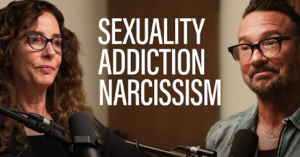by Raymond and Tamar Reilly, DHS, ACS
Friday, April 20, 2018
1:15pm – 2:30pm
FREE CEU LECTURE!
1 CEU available
This lecture will introduce and educate professional therapists and sexual health counselors in the practices and methodologies of Surrogate Partner Therapy. Incorporating case studies, we explore the actual process whereby a client progresses through the therapy with an emphasis on clearly defining each individual role within the triadic model.
Learning Objectives:
- Explain a therapist’s commitment, boundaries, and responsibilities to client and surrogate partner therapist.
- Demonstrate how to vet the client, and demonstrate protocol for referral.
- Summarize what to expect from a surrogate partner therapist.
Raymond and Tamar Reilly, DHS, ACS, are the only IPSA trained couple practicing Surrogate Partner Therapy. With over 30 years of training & education in the field of human sexuality, Doctors Tamar and Raymond specialize in treating clients of all genders, age 18 and up, who have concerns about intimacy, self-acceptance, sexuality, and relationships of any kind. Their work includes a hands-on, holistic approach to addressing anxiety, body-image issues, and other common difficulties that hinder sensual intimacy. Tamar and Raymond’s true passion is educating the community on the methodologies of SPT and broadening the scope of this therapy to include a more couples-oriented approach to overcoming sexual discomforts within all types of relationships.
This lecture takes place at Center for Healthy Sex
RSVP to charlie@centerforhealthysex.com


